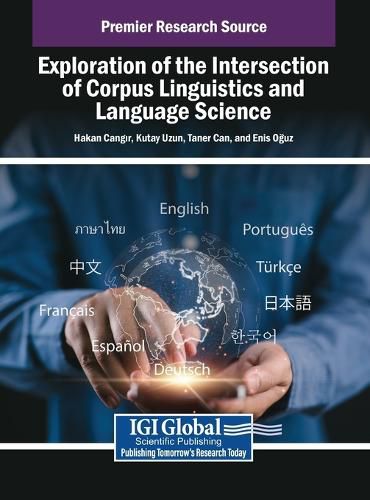Readings Newsletter
Become a Readings Member to make your shopping experience even easier.
Sign in or sign up for free!
You’re not far away from qualifying for FREE standard shipping within Australia
You’ve qualified for FREE standard shipping within Australia
The cart is loading…






This title is printed to order. This book may have been self-published. If so, we cannot guarantee the quality of the content. In the main most books will have gone through the editing process however some may not. We therefore suggest that you be aware of this before ordering this book. If in doubt check either the author or publisher’s details as we are unable to accept any returns unless they are faulty. Please contact us if you have any questions.
Corpus linguistics plays a crucial role in advancing our understanding of language by providing empirical data-driven insights across various linguistic disciplines. By analyzing large collections of real-world texts, corpus methodologies enhance language teaching, improve comprehension of language processing in the brain, and offer new perspectives on literary analysis. In natural language processing (NLP), corpora serve as the foundation for training AI models, enabling more accurate machine translation, speech recognition, and text analysis. These applications not only deepen our theoretical understanding of language but also drive innovations in education, technology, and communication. As linguistic research continues to evolve, corpus linguistics remains a powerful tool for bridging the gap between theory and real-world language use. Exploration of the Intersection of Corpus Linguistics and Language Science explores the intersection of corpus linguistics with key areas of language sciences, including language teaching, psycholinguistics, literary analysis, and natural language processing. Through innovative research and empirical studies, it highlights how corpus methodologies enhance linguistic theory, inform practical applications, and drive advancements in language-related fields. Covering topics such as phonemic awareness, cognitive patterns, and writing performance, this book is an excellent resource for linguists, psycholinguists, language scientists, educators, literacy professionals, researchers, professionals, scholars, academicians, and more.
$9.00 standard shipping within Australia
FREE standard shipping within Australia for orders over $100.00
Express & International shipping calculated at checkout
This title is printed to order. This book may have been self-published. If so, we cannot guarantee the quality of the content. In the main most books will have gone through the editing process however some may not. We therefore suggest that you be aware of this before ordering this book. If in doubt check either the author or publisher’s details as we are unable to accept any returns unless they are faulty. Please contact us if you have any questions.
Corpus linguistics plays a crucial role in advancing our understanding of language by providing empirical data-driven insights across various linguistic disciplines. By analyzing large collections of real-world texts, corpus methodologies enhance language teaching, improve comprehension of language processing in the brain, and offer new perspectives on literary analysis. In natural language processing (NLP), corpora serve as the foundation for training AI models, enabling more accurate machine translation, speech recognition, and text analysis. These applications not only deepen our theoretical understanding of language but also drive innovations in education, technology, and communication. As linguistic research continues to evolve, corpus linguistics remains a powerful tool for bridging the gap between theory and real-world language use. Exploration of the Intersection of Corpus Linguistics and Language Science explores the intersection of corpus linguistics with key areas of language sciences, including language teaching, psycholinguistics, literary analysis, and natural language processing. Through innovative research and empirical studies, it highlights how corpus methodologies enhance linguistic theory, inform practical applications, and drive advancements in language-related fields. Covering topics such as phonemic awareness, cognitive patterns, and writing performance, this book is an excellent resource for linguists, psycholinguists, language scientists, educators, literacy professionals, researchers, professionals, scholars, academicians, and more.